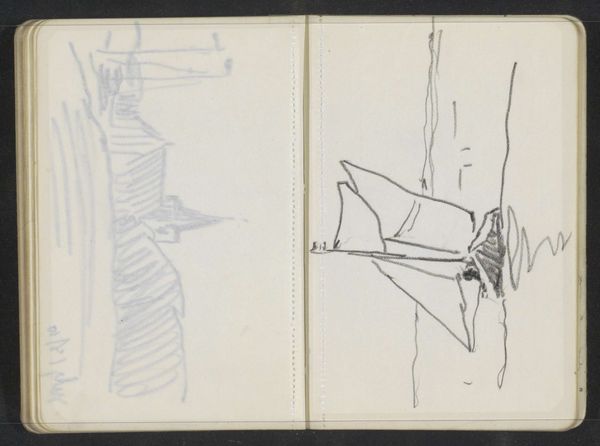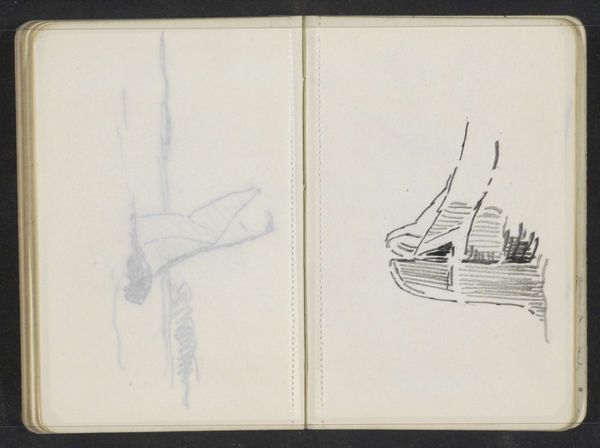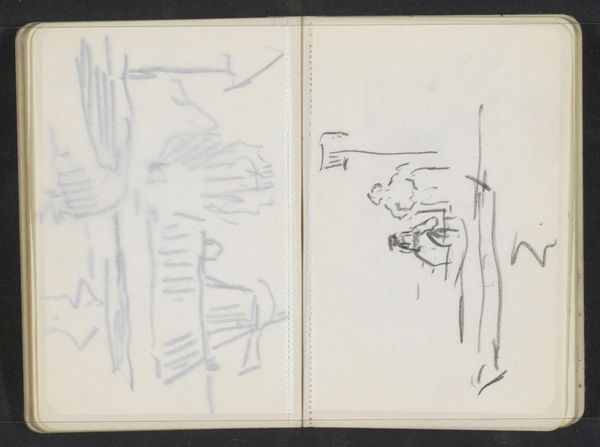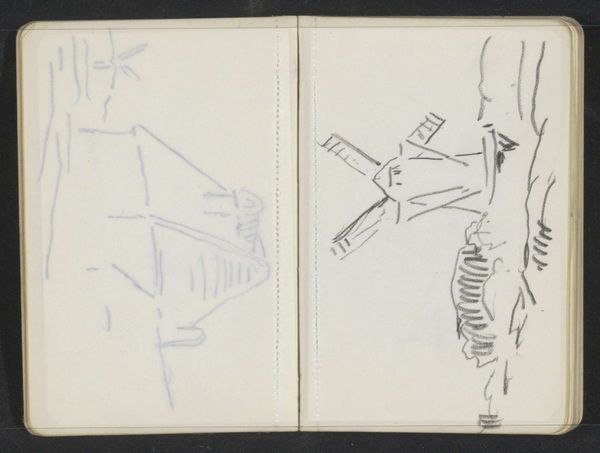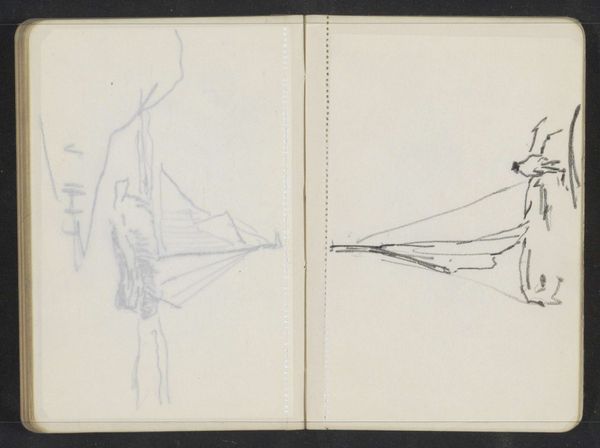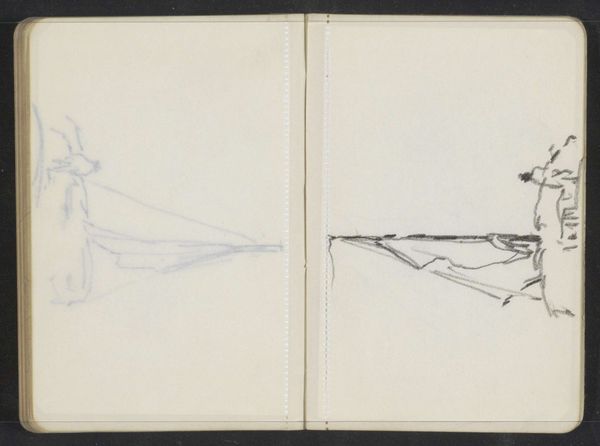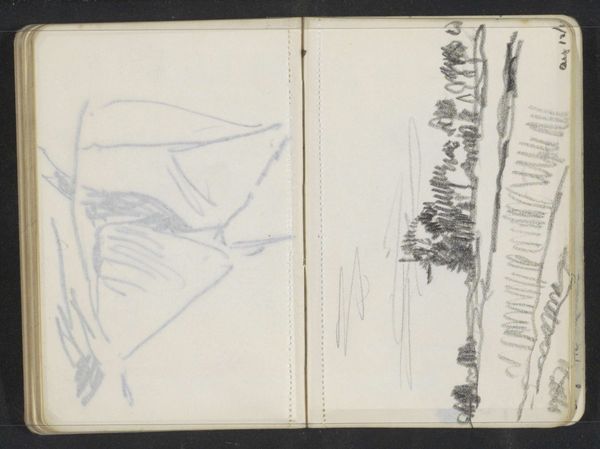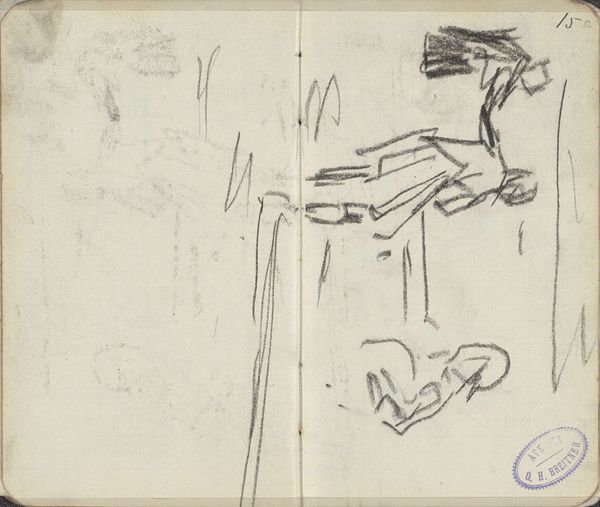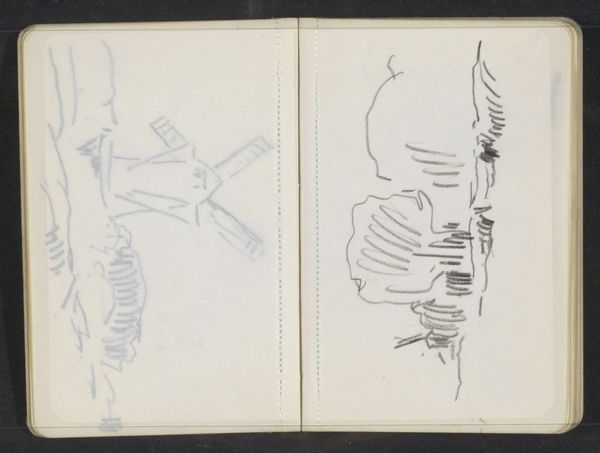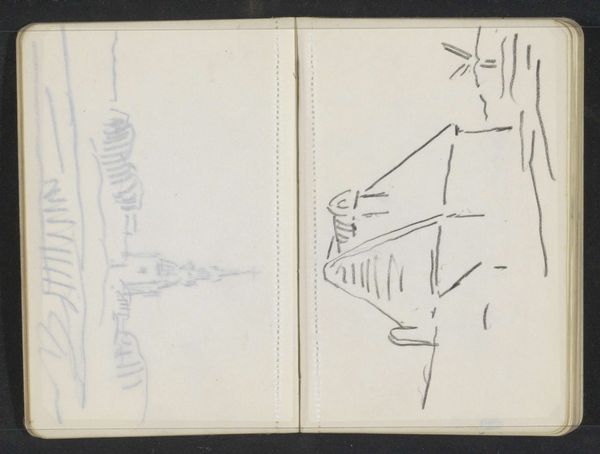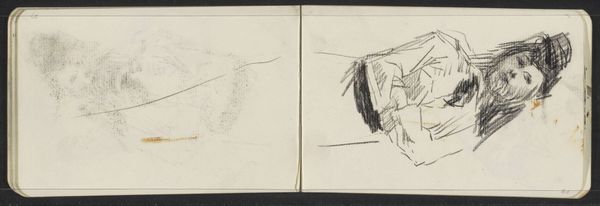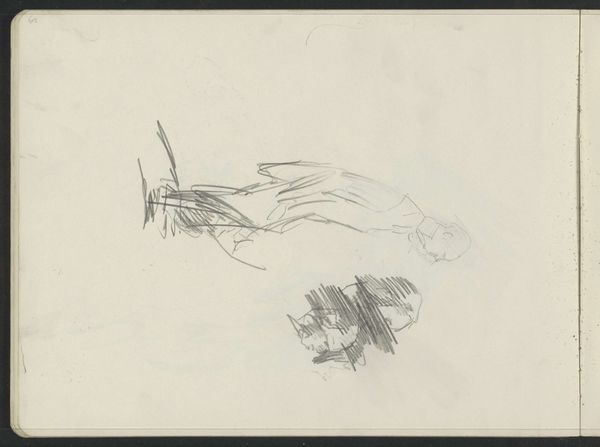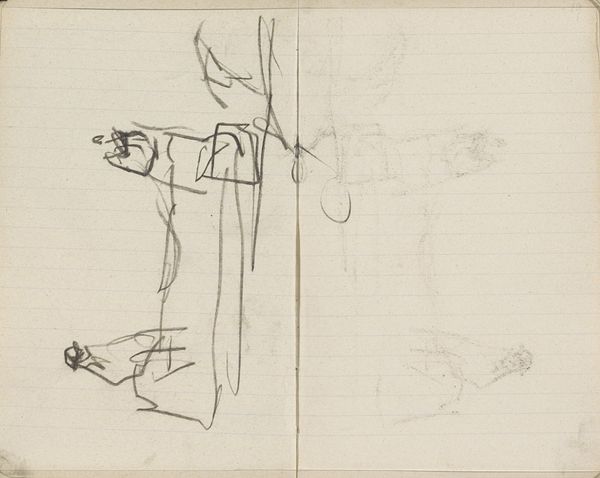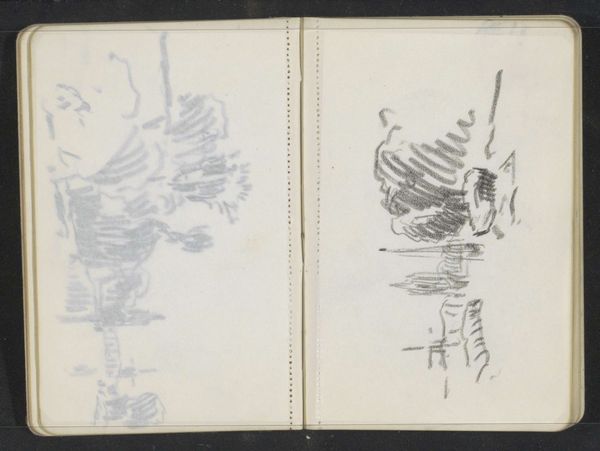
drawing, pencil
#
drawing
#
landscape
#
sketch
#
pencil
Copyright: Rijks Museum: Open Domain
Editor: So this sketch, "Zeilboot voor een kust," or "Sailboat off a Coast," is by Alexander Shilling, dating to around 1909. It's a pencil drawing, and seeing it here, inside what looks like a sketchbook spread, I am struck by its immediacy, how quickly Shilling seems to have captured these two boats. What do you make of it? Curator: Well, putting this piece in context, sketches like this were vital for artists like Shilling. Early 20th century saw growing interest in documenting everyday life. It allowed for quick and unmediated engagement. Consider the rise of plein air painting—this sketch operates in a similar vein, but with the added dimension of portability. Note the contrast between the unfinished quality and how quickly the essence of sailboats in different orientation is represented. How do you think such portability affects the final image and overall artistic movement? Editor: That's interesting! I hadn’t considered the "documenting" aspect of it, but I suppose quick impressions like this served a very important purpose, sort of like visual notes. I do feel a raw energy in those images; almost makes the sailboats alive, which I feel would have not been possible if it were made after some distance of time and place. Is this related to art becoming more accessible in general? Curator: Absolutely! This shift towards portability and capturing fleeting moments intersects with broader societal changes – increased literacy, readily available, cheap paper, industrial revolution allowing artists to capture real life scenes directly rather than idealized images of social and political hierarchy of past eras. Think about the evolving relationship between art and its audience. Do you notice something else that confirms your ideas here? Editor: Now that you mention it, looking closely at the page, it gives us such an insight into the process of image-making. That makes me think about how museums today often display sketchbooks like these to show this creative process. Curator: Precisely! Museums showcasing sketches acknowledges and celebrates the artistic process itself, inviting audiences to connect with art in a more intimate, less intimidating way, a way perhaps denied to earlier audiences who would just see the end-product. Editor: That really reframes my understanding of sketches; they aren't just preparatory but reflections of societal change and democratisation of art. Thanks for pointing this out! Curator: Likewise. Seeing your reaction reminded me how these little glimpses into an artist’s world can tell big stories about art and culture.
Comments
No comments
Be the first to comment and join the conversation on the ultimate creative platform.
